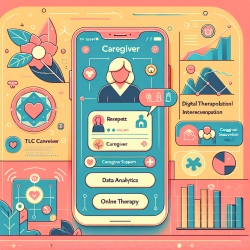The healthcare landscape is evolving, and with it, the need for a more inclusive approach to medical education. The research article "Developing Disability-Focused Pre-Health and Health Professions Curricula" highlights the pressing need for curricula that address the unique needs of people with disabilities (PWD). This blog explores how practitioners can enhance their skills by implementing the outcomes of this research or by delving deeper into this critical area.
Understanding the Need for Disability-Focused Education
People with disabilities represent a significant portion of the population but often face profound health disparities. These disparities are exacerbated by inadequate health professions education that fails to adequately prepare future healthcare providers to meet the needs of PWD. The research underscores the importance of integrating disability studies and health humanities into medical curricula to dismantle ableism and improve care quality.
Key Strategies for Implementing Disability-Focused Curricula
- Centering PWD in Education: One effective strategy is to place PWD at the center of educational content. This involves using real-life examples and narratives from disabled individuals to humanize and contextualize disability beyond mere case studies.
- Theoretical Frameworks: Incorporating theories such as the social model of disability can shift perspectives from viewing disability solely as a medical issue to understanding it as a societal construct that requires social solutions.
- Simulated Patient Encounters: Engaging students with simulated patient encounters that involve disabled actors can enhance empathy and understanding. These encounters should be designed in collaboration with disability communities to ensure authenticity and relevance.
- Interdisciplinary Approaches: Encouraging collaboration across disciplines such as nursing, social work, and public health can enrich the educational experience and provide a more comprehensive understanding of disability issues.
- Cultural Competency Training: Training that emphasizes cultural competency and humility can help future healthcare providers better understand and respect the diverse experiences of PWD.
The Impact of Disability-Focused Education
The integration of disability-focused education in health professions curricula has far-reaching implications. It not only prepares students to provide better care but also challenges existing biases and promotes a more inclusive healthcare environment. By fostering disability humility—acknowledging that one's understanding of disability will always be partial—healthcare providers can build more empathetic and effective relationships with their patients.
Encouraging Further Research and Implementation
While the research provides valuable insights, there is still much work to be done. Practitioners are encouraged to engage with this research actively, implement its findings in their educational settings, and contribute to further studies that explore innovative ways to integrate disability-focused education into health professions curricula.
To read the original research paper, please follow this link: Developing Disability-Focused Pre-Health and Health Professions Curricula.










